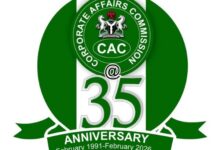Amnesty International Indicts Shell, FG For Niger Delta Pollution
Nigeria and multinational oil company Shell have been accused of grossly ignoring a UN report on devastation of Ogoni-land.
Both parties are said to have done almost nothing to ease oil pollution in the Ogoni-land area of the Niger Delta, three years after a landmark UN report called for a $1 billion clean-up, Amnesty International said Monday.
Environmental devastation in Ogoni-land has, for many, come to symbolise the tragedy of Nigeria’s vast oil wealth. Decades of crude production filled the pockets of powerful government officials and generated huge profits for oil majors like Shell, while corruption and spills left the people with nothing but land too polluted for farming or fishing.
Exactly three years ago, a United Nations Environment Programme report said the area might require the world’s biggest-ever clean-up and called on the oil industry and Nigerian government to contribute $1billion.
“Three years on and the government and Shell have done little more than set up processes that look like action but are just fig leaves for business as usual,” said Godwin Ojo of Friends of the Earth Nigeria, which partnered with Amnesty and three other groups in a new report called “Shell: No Progress”.
Shell has not pumped crude from Ogoni-land since 1993, when it was forced to pull out because of unrest.
Two years later, environmental activist Ken Saro-Wiwa, who had fiercely criticised Shell’s presence in Ogoni-land, was executed by the regime of dictator Sani Abacha, one of the most condemned episodes in the region’s history.
Nigeria returned to civilian rule in 1999 after Abacha’s death, but critics say the governments elected since have done little to improve pollution in the Niger Delta.
“No matter how much evidence emerges of Shell’s bad practice, Shell has so far escaped the necessity to clean up the damage it has caused,” said Audrey Gaughran of Amnesty International.
In April of 2013, Shell staff returned to Ogoni-land for the first time in two decades to study how best to decommission their decaying assets in the region.
The company described the move as “a key step” in complying with the UNEP report.
In a swift reaction to the report, Shell however insisted that it has made progress in addressing all the recommendations directed to it in that publication.
In a statement made available to LEADERSHIP, Shell said the majority of UNEP’s recommendations require multi-stakeholder efforts coordinated by the federal government. “As the UNEP report stated: ‘Treating the problem of environmental contamination within Ogoniland merely as a technical clean-up exercise would ultimately lead to failure. Ensuring long-term sustainability is a much bigger challenge – one that will require coordinated and collaborative action from all stakeholders’.
“SPDC has an activity programme in place, focused on delivering improvements in the environmental and community health situation on the ground. We continue to work with the government, communities and a number of constructive NGOs and civil society groups in the Niger Delta to accelerate progress.”










